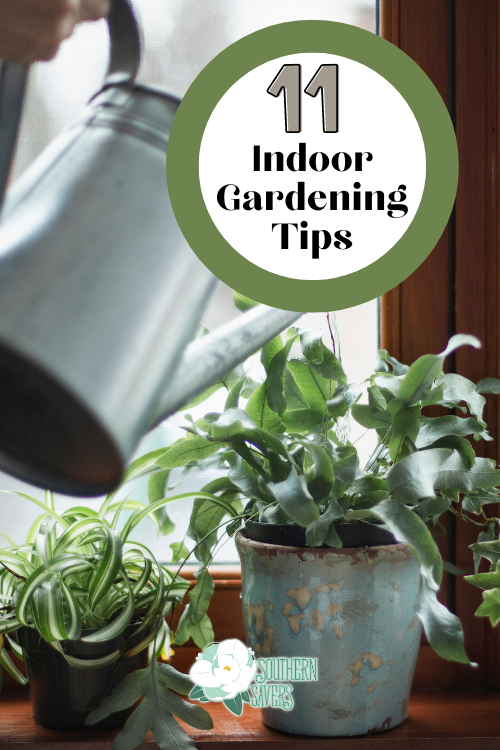This post may contain affiliate links. Read our disclosure here.
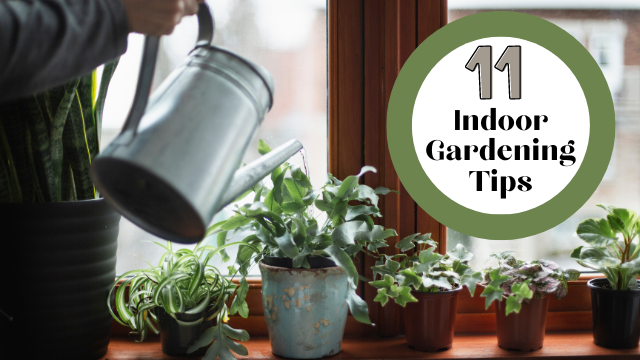
While I’m all for big outdoor gardens, whether for aesthetics or vegetable production, it’s not always practical. Some people don’t have the space or energy to handle that kind of garden. And some of us just genuinely prefer indoor plants!
I’m no expert, but I’ve finally figured out over the years how to keep my houseplants alive, so today I’m going to share 11 indoor gardening tips with you so that you can add some greenery to your indoor space.
11 Indoor Gardening Tips
Start from seed when practical
After the initial purchase of supplies, plants cost pennies, not dollars. Many veggie transplants now cost more than what you’d pay for the finished project in the grocery store!

Provide plentiful light for seeds
You need to eat least keep the plants in a window with very bright, all-day light. The best thing to do, especially if you’re trying to grow vegetables, is to use grow lights. Here are some grow light tips.
Use sterile seed starting mix
Never use outdoor soil indoors due to pests and diseases. Make your own sterile seed starting mix or buy it from a store. You can use bagged potting mix for houseplants.
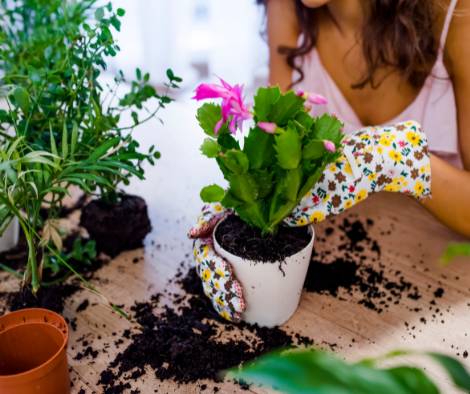
Buy pots with drainage holes
If your pot doesn’t have drainage holes, water will collect at the bottom and the roots will rot. If you have a fancier pot with nice looks but no drainage hole, transplant the plant into a cheap plastic cache pot that fits snugly into the nice pot. That way you can water, remove the plant and cache pot after watering, and drain the excess water.
Beware pests
Plants will attract pests, especially fungus gnats. To help combat them, you can buy cheap sticky traps.
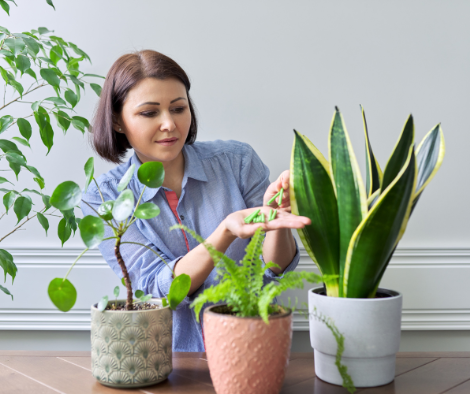
Provide adequate nutrition
Indoor plants can’t access nutrients available in outdoor soil, so use indoor fertilizers, liquid or granular, according to package instructions.
Know your plants
Google the specific houseplant to see what kind of light, water, humidity, and nutrient requirements it has. Different plants have wildly varying needs, and what works for one will kill another.
Water carefully
More plants are killed by being “loved to death” and overwatered than underwatered. You should only water when the soil is dry to the touch 1-2″ below the surface. Water thoroughly until it flows out of the drainage holes, let it sit for 10 minutes, then drain the excess water that collects in pot or saucer underneath.
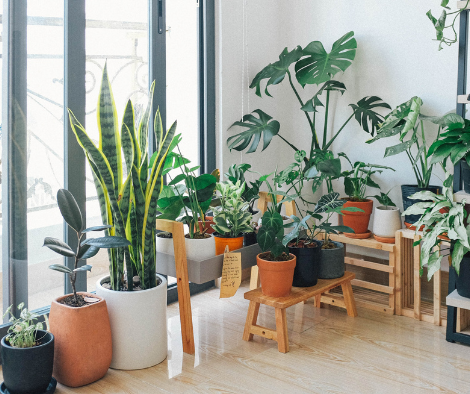
Show off your work
When practical, display plants prominently in places where they can be seen and appreciated!
Prepare to pollinate
Plants that produce edible fruits, such as tomatoes, depend on pollen being transferred from one flower to another in order to produce. Since you hopefully don’t have bees and butterflies flying around indoors, you can use an old makeup brush or electric toothbrush to collect pollen from one open flower and transfer it to another.
Learn propagation
Most plants, especially common houseplants, can be cloned easily from a small piece of leaf or stem. Save money by buying one and propagating multiple copies from cuttings.
See more tips on gardening in small spaces!
